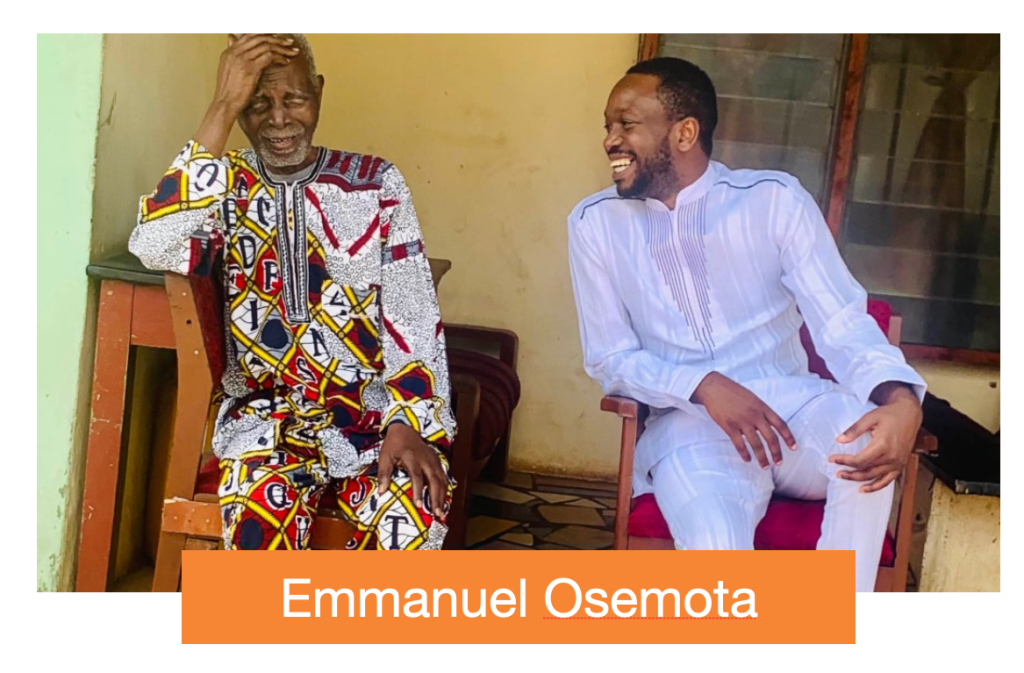by IASC Goodwill Ambassador writing from the USA Emmanuel Osemota
Human Trafficking in Nigeria: The New Slave Trade
“You pray for death.” Those are the harrowing words of Adaura C., (pseudonym) a young Nigerian woman who, in 2013, was promised a job as a domestic worker in Libya by another woman. She would earn 150,000 naira (USD $414). To Adaura, it seemed like a dream; it would turn into a nightmare.
After completing the grueling, dangerous journey across the vast Sahara Desert – where the drivers would beat and rape the other women and girls – she arrived in Libya to discover that she would not be a domestic worker but a prostitution in a brothel run by a “madam.” Locked in a room without food and threatened with death, the madam informed Adaura and a friend that she must have sex with clients without condoms to pay off a “debt”: $4,000 to cover travel expenses.
Within a month, Adaura was pregnant until the madam forced her to have an abortion. Soon after, she was sold to a Nigerian man who also sexually exploited her. On and on, her experience of suffering and exploitation continued – until, three years later, Libyan soldiers helped her escape, and the International Organization for Migration (IOM) repatriated her to Nigeria. She lived to tell her story; many do not.
The New Slave Trade
None of us are ignorant of the horrors of the Transatlantic Slave Trade. Africans, from coastal Kingdoms (many in modern-day Nigeria), were enslaved, torn away from their homelands, placed in fetters, and transported to live a life of grueling hard labor on the sugar and cotton plantations in the New World.
This new slave trade is partly fueled by the naivety of desperate Nigerians who seek work due to rampant unemployment in the country. Approximately 15 million Nigerians live outside the country – and an increasing proportion was human trafficked.
Their stories are not dissimilar to Adaura’s. Lured by the prospect of domestic jobs, they’re taken from inside the country’s borders to several potential destinations. Some go to work in Nigeria’s dangerous granite mines; others are funneled to other West and Central African nations, like Gabon, Cameroon, and Ghana, for domestic servitude, sexual exploitation, and street hawking; and more still head towards Europe, where prostitution awaits. In 2016, around 40,000 Nigerians arrived in Europe – with the numbers declining since. Many never make it that far, being waylaid in stateless Libya (living lives much like Adaura). Their names, their stories, and their suffering go unremembered and unheard.
Estimating the scale of trade is difficult. In 2017, IOM reported a 600 pc increase in potential sex trafficking victims arriving in Italy by sea, most from Nigeria. IOM also estimates that 80 pc of young Nigerian women arriving in Italy will be forced into prostitution. The majority were trafficked by people they knew, preying on their desperation or naivety.
Convictions and Pushback
The collapse of the Gaddafi government and the rise of Boko Haram collectively reduced the official apparatus in vast swathes of Africa. Mass migrations passing through these lawless zones create a substantial risk for human rights abuses. Few recruiters are ever caught – free to act with impunity. According to the 2021 Trafficking in Person report for Nigeria – created by the US government – only 36 convictions occurred during the reporting period.
But while some prey, others protect. One example is the NGO, Emmanuel Osemota Foundation (EOF). EOF has been making giant strides in protecting individuals against human trafficking in Nigeria. It has a three-tiered strategy: Prevention, Advocacy, and Rehabilitation to combat this scourge of human trafficking. They believe that the fight against human trafficking starts long before a victim becomes a victim and are proud to stand with them, in every means possible, showing them that their story is not over, but is just beginning.
In marking World Day Against Human Trafficking in 2021, activists converged on Lagos in a push to prosecute traffickers. The government counters that it created the National Agency for the Prohibition of Trafficking in Persons (NAPTIP) in 2003. To date, the organization has rescued over 17,000 victims and convicted 550 offenders – a fraction of the total. However, prosecutions require victims to go to court and confirm what happened to them: no simple feat.
A study by Professor Uwanfiokun Idemudia and his then Ph.D. student Nnenna Okoli analyzed the situation. They identified three clear findings: first, the collaborative approach between government agencies and NGOs was practical and allowed for greater reach; second, rehabilitation and reintegration programs treat victims as disempowered survivors, not considering the person’s long terms needs; and third, current socioeconomic conditions limit the reintegration of survivors.
Fundamentally, it is this third point that underlies all others. Unless Nigeria can enhance its economic fortunes, desperate people will take desperate measures, forever vulnerable to the unscrupulous, exploiting the situation for their own ends.
Writing in The Conversation, Professor Idemudia and Okoli explain:
“An over-emphasis on reaction rather than prevention, and the poor socioeconomic conditions in the country, also limit the programmes’ effectiveness.”
Merely finding survivors and treating them is not sufficient. Preventative measures that educate and raise awareness of the dangers posed by human traffickers are key. Too many Nigerians currently live with rose-tinted glasses about opportunities abroad – particularly in Europe. While opportunities do exist elsewhere, Nigerians, especially youngsters, should be told of the dangers. Would Adaura have accepted the offer if she had known the potential dangers in Libya? We may never know – but it should at least have been for her to decide.
Emmanuel J. Osemota
Writes from the USA
References:
https://www.voanews.com/a/africa_activists-push-nigeria-prosecute-human-traffickers/6208939.html
https://www.hrw.org/report/2019/08/27/you-pray-death/trafficking-women-and-girls-nigeria
https://www.iom.int/countries/nigeria
https://guardian.ng/news/36000-nigerians-crossed-to-italy-via-mediterranean-sea-in-2016/
https://www.dw.com/en/the-ugly-truth-about-nigerias-child-trafficking/a-62622680
https://www.dw.com/en/human-trafficking-in-nigeria/a-57173078

